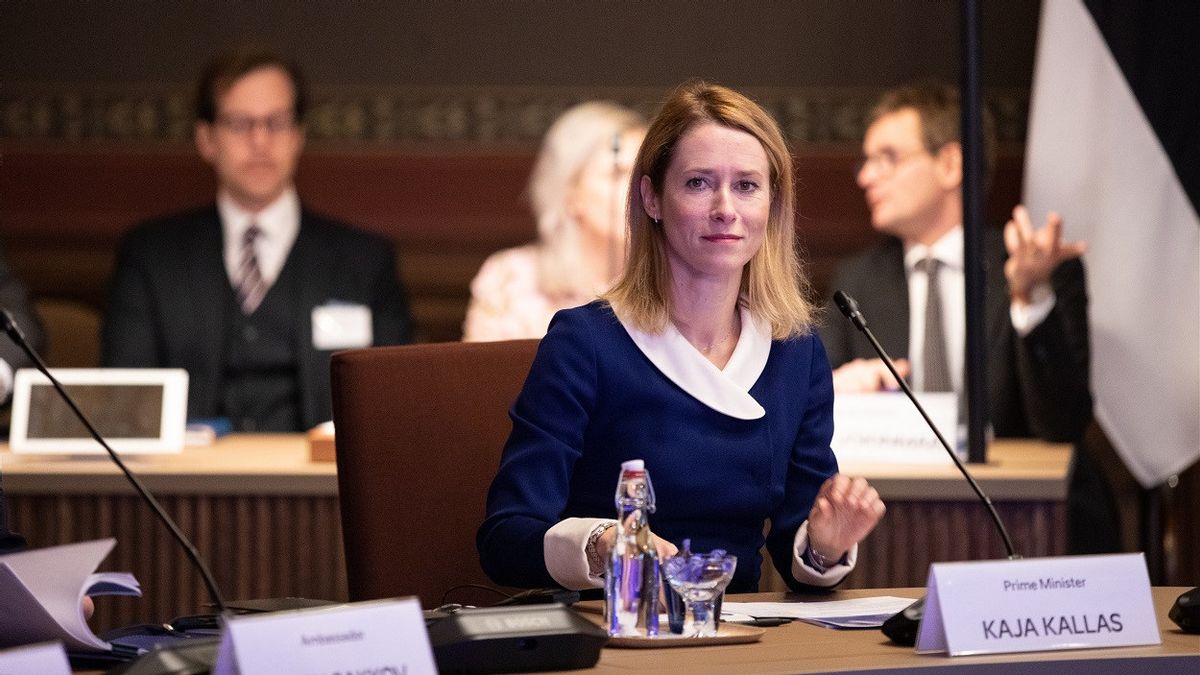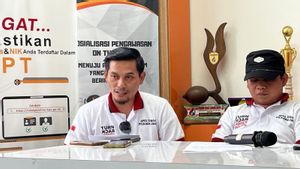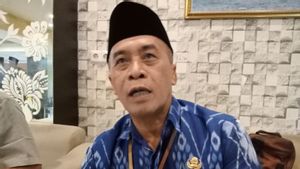JAKARTA - Estonian Prime Minister Kaja Kallas on Sunday rejected an arrest warrant issued by Russia, saying it was just an attempt to intimidate him amid speculation he could get an important post in the European Union, emphasizing his fearlessness.
Estonia, once controlled by Moscow but now a member of the European Union and NATO, has become a supporter of Kyiv with Kallas becoming one of Moscow's most vocal critics since Russia's invasion of Ukraine nearly two years ago.
Russian police put him and several other Baltic politicians on a wanted list on February 13, over plans to destroy Soviet-era monuments.
"This was intended to intimidate and make me refrain from decisions that I should have taken," Kallas told Reuters in an interview on the sidelines of the Munich Security Conference, reported by Reuters, February 19.
"But these are Russia's guidelines. There is nothing surprising and we are not afraid," he stressed.
Kallas' high profile push for the European Union to do more to support Ukraine has led to speculation in Brussels he could take a senior role after the next EU parliamentary election in June, perhaps as foreign policy chief.
He said that speculation also contributed to Russia's aggression against him.
"It's hard to be popular," he said ironically.
"Russia has seen that too, and that's why they issued an arrest warrant to really emphasize the biggest argument against me, that I was a provocation against Russia," he continued.
When asked if he was interested in Europe's future role, he said: "We are not there yet. I am the Prime Minister of Estonia," he said.
As previously reported, PM Kallas, together with Estonian Foreign Minister Taimar Peterkop and Lithuanian Culture Minister Simonas Kairys, were on the Russian police's wanted list regarding plans to destroy Soviet-era monuments.
Kremlin spokesman Dmitry Peskov said Kallas was wanted for "defamation of historical memory". Meanwhile state news agency TASS said Baltic State officials were accused of "destroying monuments to Soviet soldiers".
SEE ALSO:
Meanwhile, Russian Foreign Ministry spokeswoman Maria Zakharova said: "This is just the beginning."
"Crimes against the memory of the world's liberators of Nazism and fascism must be prosecuted," Zakharova said.
Baltic politicians risk arrest only if they cross the Russian border, otherwise declaring them wanted would have no real consequences.
The English, Chinese, Japanese, Arabic, and French versions are automatically generated by the AI. So there may still be inaccuracies in translating, please always see Indonesian as our main language. (system supported by DigitalSiber.id)


















